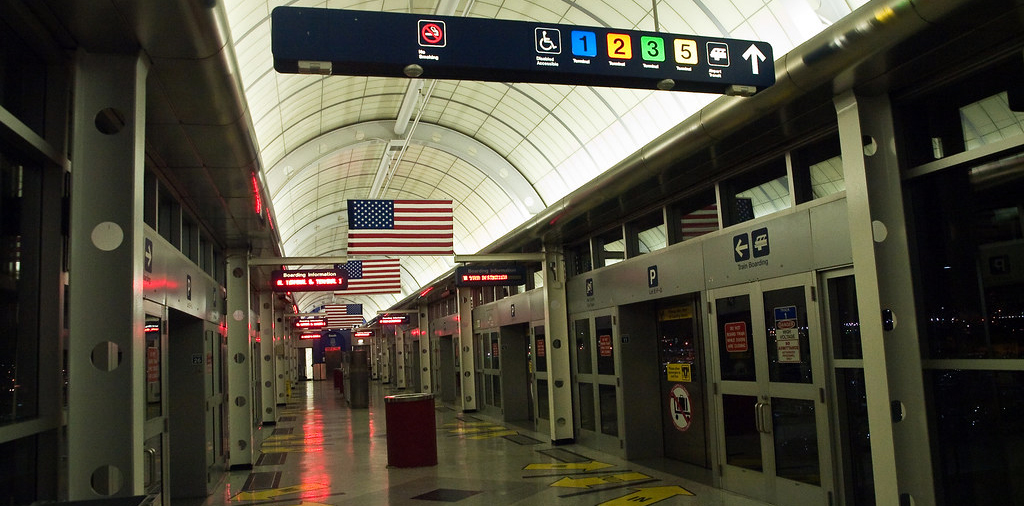
It’s been a little over a year since Jonah* and his wife arrived at Chicago’s O’Hare International Airport from Zimbabwe.
“After asking for asylum, I was then arrested, which was the part that I didn't expect. I was then put in handcuffs and I was speechless, because I thought it was a different process,” Jonah said.
In that time, he’s been separated from his wife, thrown into immigration detention for three months, missed the birth of his child, won asylum, and gotten a job at Heartland Alliance, the organization that helped to put him in touch with his immigration lawyers, pro bono attorneys Andrew Nieland, Michael J.B. Pitt, and Andrea Sill of Barack Ferrazzano Kirschbaum & Nagleberg LLP.
Jonah left Zimbabwe last fall because, as a member of an opposition political party, he often found himself threatened by governmental organizations, including the military.
“They want to silence the opposition, so there are a lot of abductions and a lot of beatings, and torture,” he said. “I would say there is no right to express yourself.”
He hardly expected that the asylum process would involve experiences that felt like a state-sanctioned abduction, which included middle-of-the-night transfers to different detention centers and a lack of information about how his case was proceeding.
“They just wake you up at 12 midnight and they say, ‘You're going,’” Jonah said. “You don't know where you're going, and when I asked them ‘where am I going?’ the guy told me, ‘we are going to immigration.’”
This was the only preparation Jonah had for his credible fear interview, a critical step in the asylum process. The outcome of the credible fear interview can determine whether or not someone is granted the right to defend their case in court, or is deported. Jonah also said he wasn’t the only one who was having a difficult time in detention.
“I've seen a lot of people who were suffering,” he said. “I was one of them, but I tried to be strong. We shared our stories with other inmates and offered each other advice, but being in jail traumatized me. I had never in my life been arrested, and suddenly I was in jail. You don't know whether you're going back home or not. The whole system needs an overhaul to give people a chance to prove their case under not-so-intimidating circumstances.”
Jonah also faced some obstacles that were more unique to his situation.
“The main challenge I had [in detention] was language,” Jonah said. “Most people there did not speak English, mostly Spanish and Arabic in most instances. Although there were other Africans there like me, we don't all speak the same language, so they spoke French, or something else.”
It was while he was in detention that Jonah first made contact with the National Immigrant Justice Center. Lawyers from NIJC came to the McHenry County Correctional Center, where Jonah was being held, and helped set him up with a pro bono attorney. Jonah was granted asylum and was released from detention last December. Jonah’s story then became not only about how broken the immigration and asylum process is, but also about the networks of organizations Chicago has to help people acclimate to their new city.
“Being in detention gave me a lot of time to think about what I was going to do and how I wanted to do it,” Jonah said.
After his release, NIJC put Jonah in touch with World Relief, which helped him complete all the paperwork to obtain work authorization, and Upward Global, which helped Jonah prepare his resume and practice interview skills.
The job Jonah ended up getting? A position with Heartland Alliance, NIJC’s parent organization.
“They helped me a lot at NIJC,” Jonah said. “It felt like there were people who were on my side. I chose to work for Heartland Alliance not only because of the NIJC connection, but because it’s part of my fulfillment journey. I am helping support worthy projects to help those marginalized in society.”
If you’re a pro bono attorney and would like to work on a case like Jonah's, please reach out to the detention pro bono coordinator, Jesse Johnson, at jejohnson@heartlandalliance.org
Alejandra Oliva is the communications coordinator at NIJC.
photo by taekwonweirdo

